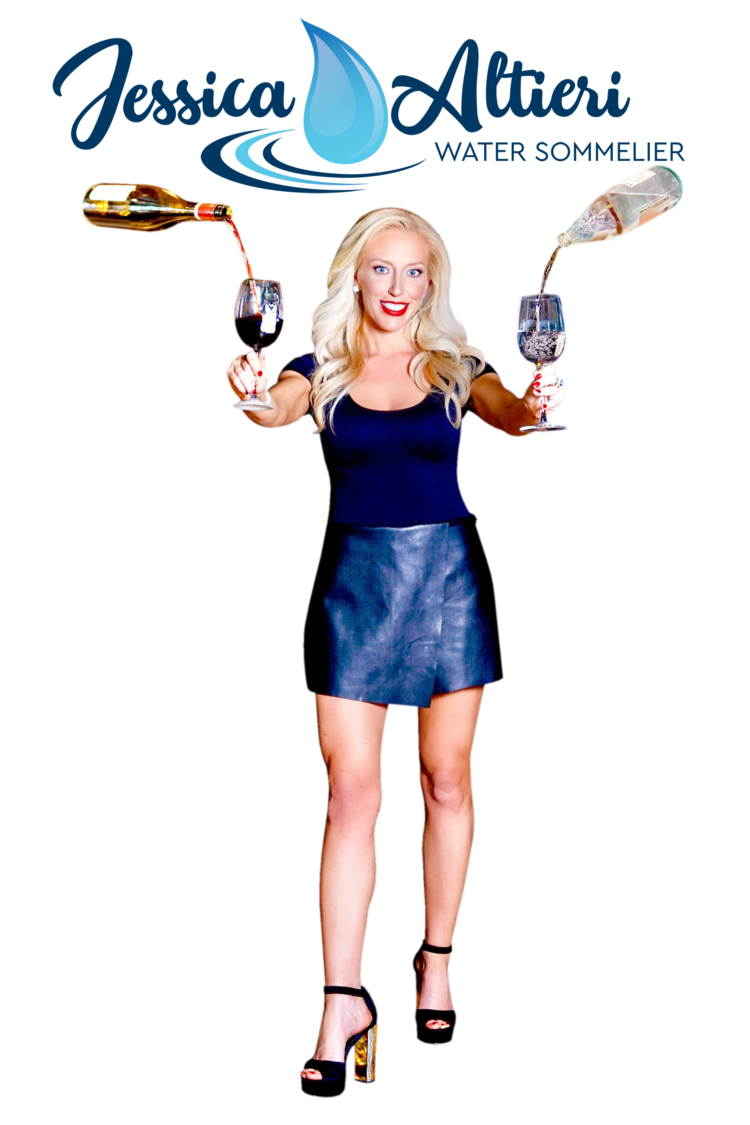Does Water Really Matter To Make a Great Cup of Tea or Coffee?
Certified Water Sommelier Jessica Altieri has some thoughts on why and how to make your own “worlds best” tea and coffee for the holidays. Think of it as a holiday present to yourself that keep son giving every time you need to make a great cup of tea or coffee. Does water really matter in making a great cup of tea or coffee? Make your own decision.
Here are some facts to think about to make a great cup of tea or coffee:
· From Zhang Dafu (tea master of the Qing dynasty): "The quality of a good cup of tea depends on 20% of the tea itself and 80% of water used.“
· Coffee is about 95% water, tea even 99%. I know this is being “captain obvious”, but its worth seeing in print.
What is “hard water” and does it have an impact on my cup of tea or water?
Water hardness is defined as the concentration of dissolved ions of the alkaline earth metals in the water. This means it includes mainly calcium and magnesium ions and traces of strontium and barium.
What the heck is “Carbonate Hardness” and why do I need to know?
Carbonate hardness is the proportion of alkaline earth metal ions bound to hydrogen.
A water is located in the so-called lime - carbonation equilibrium if it contains enough carbon dioxide that it cannot precipitate any lime, but also cannot dissolve any lime. If carbon dioxide is withdrawn from such water, sparingly soluble compounds such as calcite and dolomite form (scale).
Due to the temperature dependence of this equilibrium system, deposits can also form in the preparation of hot water (coffee machine, kettle).
A cup of joe calls for just two ingredients: coffee and water. That’s one of the lovely things about it. It’s just so easy to make this strengthening, heartening brew. But is it actually as easy as you thought?
Hmm. Well there’s the coffee. Not just any old can of Kirkland will do; naturally you want the good stuff from an artisanal roaster. Local if possible, toasted to just the right color, well-balanced and pure. As for water … Oh, you thought you could just turn on the tap, collect a few cupfuls of agua and call it good? Think again, my friend.
Brewing Water Basics
Water, just like the coffee itself, isn’t a simple ingredient. Both are more akin to wine than we give them credit for: nuanced, complicated, gently redolent of a thousand different scents and flavors. Luckily your roaster takes care of the beans for you. But the water?
For starters, nail down the basics. The Special Coffee Association of America publishes guidelines concerning water for brewing coffee. The water should be clear, without chlorine or odors. Water filtration devices are a pretty easy way to accomplish this, though the pitchers tend to be small: try a faucet-mounted device instead.
Mineral Content Matters
The hardness of the water also matters. While water softeners are commonly used at home to prevent minerals from lining the insides of pipes, washing machines and so on, some people advocate that hard water makes a better cup of coffee, because minerals such as magnesium and calcium – good for you, by the way – bring out coffee’s flavor.
That’s the foundation of game-changers such as Third Wave Water, which add minerals back in to de-mineralized water to make them perfect for brewing. That way, if you have to soften your water at home (remove its minerals), you can still make a great cuppa.
Want to learn more about water? We invite you to get in touch with Jessica Altieri Fine Water Sommelier today.

